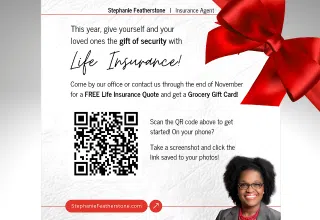Spring break offers families and students an opportunity to travel during a vacation from school. However, it also provides a chance for scammers to offer fraudulent vacation rentals, third-party booking sites and travel agencies designed to appeal to the consumer looking to getaway. With spring break for many Texas school districts occurring Mar. 13-17, BBB reminds consumers to be wary of travel-related scams as they make their plans and finalize payments.
From February – Mar. 31, 2022, U.S. consumers reported over $150,000 lost to travel scams to BBB Scam Tracker and more than 60,000 reports to the FTC in 2022 resulted in over $100 million lost. Scammers often take advantage of consumer habits and capitalize on trending internet searches, enticing consumers with great deals to popular destinations or all-inclusive packages. While these scams persist year-round, they often increase in frequency during periods of increased travel, such as spring break and the holiday or summer season.
To assist consumers in identifying and avoiding the most common travel scams, BBB provides the following brief descriptions of the top five most-reported travel scams:
- Vacation rental con. These con artists lure in vacationers with the promise of low fees and great amenities. The “owner” creates a false sense of urgency – such as telling potential clients that another vacationer is interested in the rental – to get payment up before doing sufficient research or questioning the legitimacy of the ad.
- “Free” vacation scams. When a cruise or travel company advertises a vacation as “free,” it does not necessarily mean the trip is without cost or restrictions. Watch out for add-on fees for air transportation, port charges, taxes, tips and other undisclosed fees.
- Hotel scams. When staying in a hotel, beware of scammers who use various techniques to obtain credit card information, including fake front desk calls, “free” wi-fi connections and fake food delivery.
- Third-party booking site scams. If you book your airfare, hotel or other travel through a third-party website, be sure to use caution. BBB Scam Tracker continues to receive reports of scammers pretending to be online airline ticket brokers. In the most common version of the scam, travelers pay with a credit card and, shortly after making the payment, receive a call from the company asking to verify name, address, banking information or other personal details – something a legitimate company would never do.
- Timeshare reselling cons. A timeshare owner looking to sell gets a call from someone claiming to be a real estate broker or agent. These scammers claim to specialize in timeshare resales and promise they have buyers ready to purchase. To secure this service, the scammer pressures the target into paying an upfront fee. The timeshare owner pays up, but the reselling agent never delivers.
To avoid becoming a victim of a travel scam this spring break, Better Business Bureau recommends prospective travelers follow these guidelines:
- Get trip details in writing. Before making a final payment, get all the trip details in writing. Details should include the total cost, restrictions, cancellation penalties, and names of the airlines and hotels. Also, review and keep a copy of the airline’s and hotel’s cancellation and refund policies and the travel agency or booking site’s cancellation policies.
- Too-good-to-be-true deals. As is common in various scams, if the deal or discount seems to be too good to be true, it probably is. Scammers often use this tactic to lure in potential victims and use aggressive “limited time” language to entice travelers to pay before researching the business.
- Avoid wiring money or using a prepaid debit card. These payments are the same as sending cash. Once the money is sent, there is no way to get it back. Paying with a credit card can be disputed and dramatically limits liability from a fraudulent purchase.
- Call the rental owner. If you are not using a service that verifies properties and owners, do not negotiate a rental solely by email. Many scammers don’t live locally. Speaking with the owner on the phone and asking detailed questions about the property and local attractions will clarify whether the listing is genuine. An owner with vague answers is a clear red flag.
- Unsolicited offers. Be particularly cautious if you “win” a free trip without entering a contest or sweepstakes. This is especially true if the offer is time-sensitive and requires the consumer to accept and pay for the offer immediately or risk it going to another “winner.” Check the official website of the company the offer is originating from to verify that it is legitimate.
For more tips on how to avoid travel scams, visit BBB.org/Travel.
If you or someone you know has been a victim of a travel scam, report it to BBB Scam Tracker. Information provided could prevent another person from falling victim.













Comments